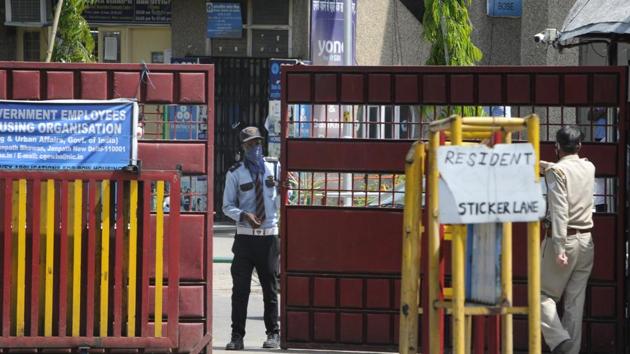It is time to resume political activity | Opinion
While open political contestation faces hurdles, the government needs to be held accountable
Five weeks ago, the nationwide lockdown announced by Prime Minister Narendra Modi placed the Indian economy in cold storage. It also seems to have put politics on ice. As the government prepares to gradually dial down the economic freeze on May 3, politics, too, must emerge from its hibernation. Politics — at its core — is about forging a settlement out of diverse public policy positions. Indeed, the very nature of the coronavirus disease (Covid-19) invites divergent approaches to halting the spread of the virus and blunting its impacts.

And yet, the current moment presents a set of paradoxes in the political realm.
First, although the pandemic presents a unique political moment with enduring consequences for parties and leaders, it also is a fraught time for political mobilisation. National crises are usually conceived as opportunities for citizens to rally around the flag, perhaps even more so in India than in many other democracies. Therefore, it is not easy for the Opposition to critique the government’s handling of the crisis.
Second, the government is taking monumental, high-cost decisions with the objective of shielding citizens from the pandemic. But, citizens, the Opposition, and civil society struggle to hold it accountable. On March 24, India instituted one of the most stringent lockdowns in any country in the world. Was this a wise, far-sighted decision or a hasty overreaction? The counter-factuals are too complex to answer this question with precision. Thus, it is hard to pin the blame on the incumbent because the crisis feels unprecedented.
Third, the crisis reveals huge faultlines in India’s political economy — poor capital-labour relations, weak protections of migrants and informal workers, neglect of public health systems, and grave disparities between the haves and the have-nots. And yet, given the scale of the mobilisation and its expected duration, chances are that citizens will be gasping for air when the dust finally settles. At that point, there may be little appetite for translating the lessons of the crisis into actionable reform. The emotional and psychological bandwidth of 1.3 billion Indians will be stretched to its outermost limits.
Fourth, while the states are doing the bulk of the heavy lifting — albeit with significant variations — their efforts are likely to be overshadowed by the central government’s unparalleled visibility. Of the scores of measures taken to curb the pandemic, it is state health workers, police officers, and administrators that are on the frontlines. In normal times, state-level differentiation might be possible. But the Centre’s invocation of the Disaster Management Act (DMA) has shrunk available political space because it is the Centre that is issuing guidelines on the lockdown, testing, procurement and treatment infrastructure. States are cast as mere implementers of central edicts. Even a success story like Kerala found its attempts to widen the scope of permitted economic activities thwarted by New Delhi.
Going forward, politics should not continue to operate in a state of suspended animation. After all, other democracies have managed — however imperfectly — to balance the demands of democracy with the imperatives of crisis response. In the United States, there is a daily display of political wrangling between Washington and state capitals and in the ongoing presidential campaign. Closer to home, South Korea just held a presidential election — recording the highest turnout in three decades.
Politics must resume its course in India as well. While open political contestation faces practical hurdles, some aspects of this crisis actually deserve to be politicised. Perversely, the effort to depoliticise the crisis is itself a form of politicisation.
First, this should not become a purely rally-round-the-flag crisis. The objectives are too ambiguous and trade-offs too complicated to justify such a framing. Although the Bharatiya Janata Party’s dominance makes effective critiques of the Centre’s decisions difficult, questions must be raised about alternative strategies and policy approaches.
Second, even though accountability for outcomes is difficult, the government must be held responsible for its crisis modelling, mitigation efforts, and measurable outputs such as treatment infrastructure. Citizens deserve detailed, data-driven, model-based explanations for key strategic choices, and regular updates on personal protective equipment procurement, hospital bed availability, intensive care unit capacity and supply of ventilators.
Third, since the crisis has revealed huge social and economic fractures — from the issue of seasonal migrants to the urban poor — the challenge for politics is to keep these issues on the front-burner rather than waiting for the crisis to subside.
Fourth, states must demand more space to chart their own paths. There is enormous subnational diversity in economic realities, health systems, and administrative capacity. Legally, the states have a case. The Constitution places public health in the State List, while controlling the inter-state transmission of epidemics is in the Concurrent List. While the Centre has invoked the DMA, it is debatable whether the Centre can supersede the states in an epidemic, especially because the Epidemic Diseases Act, 1897, empowers the states to regulate activities to reduce virus transmission (and the Centre to regulate ports of entry). However, this space needs to be reclaimed — it will not be easily ceded.
Crises are often moments when political fortunes are made or unmade. Pressing the pause button on politics for too long would be both unwise and unhealthy for the long-term prognosis of Indian democracy.



